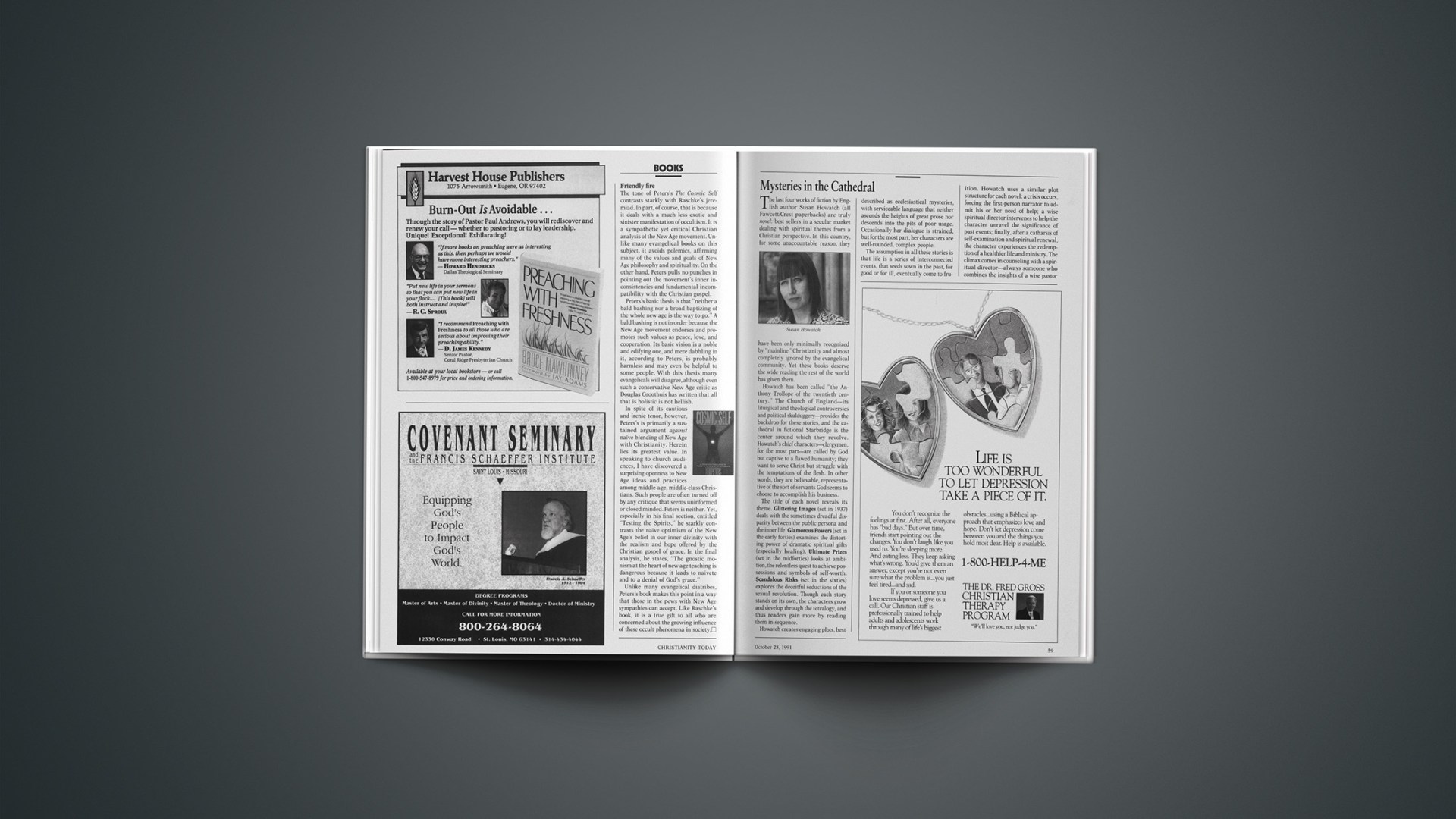The last four works of fiction by English author Susan Howatch (all Fawcett/Crest paperbacks) are truly novel: best sellers in a secular market dealing with spiritual themes from a Christian perspective. In this country, for some unaccountable reason, they have been only minimally recognized by “mainline” Christianity and almost completely ignored by the evangelical community. Yet these books deserve the wide reading the rest of the world has given them.
Howatch has been called “the Anthony Trollope of the twentieth century.” The Church of England—its liturgical and theological controversies and political skulduggery—provides the backdrop for these stories, and the cathedral in fictional Starbridge is the center around which they revolve. Howatch’s chief characters—clergymen, for the most part—are called by God but captive to a flawed humanity; they want to serve Christ but struggle with the temptations of the flesh. In other words, they are believable, representative of the sort of servants God seems to choose to accomplish his business.
The title of each novel reveals its theme. Glittering Images (set in 1937) deals with the sometimes dreadful disparity between the public persona and the inner life. Glamorous Powers (set in the early forties) examines the distorting power of dramatic spiritual gifts (especially healing). Ultimate Prizes (set in the midforties) looks at ambition, the relentless quest to achieve possessions and symbols of self-worth. Scandalous Risks (set in the sixties) explores the deceitful seductions of the sexual revolution. Though each story stands on its own, the characters grow and develop through the tetralogy, and thus readers gain more by reading them in sequence.
Howatch creates engaging plots, best described as ecclesiastical mysteries, with serviceable language that neither ascends the heights of great prose nor descends into the pits of poor usage. Occasionally her dialogue is strained, but for the most part, her characters are well-rounded, complex people.
The assumption in all these stories is that life is a series of interconnected events, that seeds sown in the past, for good or for ill, eventually come to fruition. Howatch uses a similar plot structure for each novel: a crisis occurs, forcing the first-person narrator to admit his or her need of help; a wise spiritual director intervenes to help the character unravel the significance of past events; finally, after a catharsis of self-examination and spiritual renewal, the character experiences the redemption of a healthier life and ministry. The climax comes in counseling with a spiritual director—always someone who combines the insights of a wise pastor and an astute psychologist.
The important moment in the climax of these stories is the unveiling, the uncovering of something in the past that had been hidden or repressed. To the extent that Howatch means to say that honest confession is part of full renewal, she cannot be faulted. But she comes close to a subtle gnosticism—a belief that salvation comes through right knowledge, which, of course, is the creedal center of much contemporary psychology. What finally protects her from this charge, I think, is that later books show her characters still wrestling, though in subdued ways, with their familiar demons. Knowledge itself doesn’t save; it can simply help move one toward greater dependence on God and the spiritual disciplines.
I’m certain that when the promised fifth book appears, I will be one of the first in my town to buy it, eager to follow the continuing spiritual adventures of the men and women of Starbridge Cathedral.
Reviewed by Donald McCullough, author of Finding Happiness in the Most Unlikely Places (InterVarsity)










